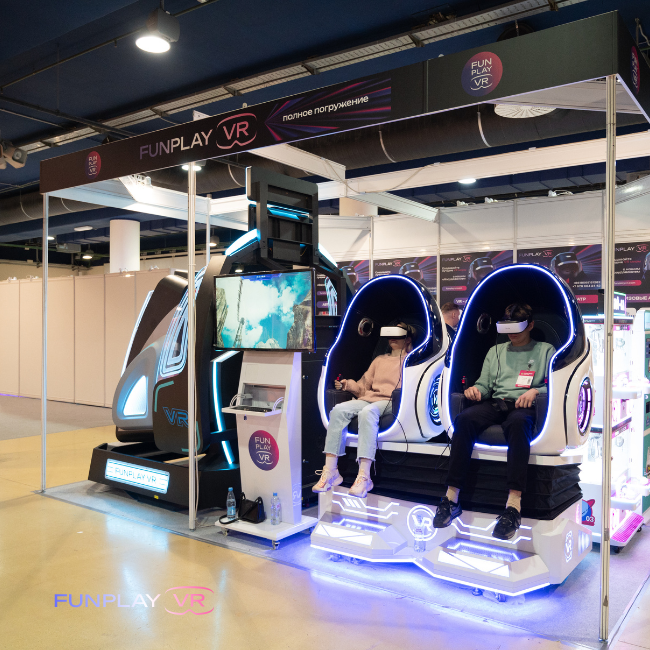VR Simulators in Kazakhstan: A Leap into the Future of Entertainment and Education
The integration of technology into daily life has opened up new horizons for entertainment and education worldwide. In Kazakhstan, the emergence of VR (Virtual Reality) simulators is revolutionizing how people experience virtual environments. This article explores the impact and potential growth of VR simulators in Kazakhstan’s evolving tech landscape.
The Rise of VR Simulators: VR simulators offer immersive experiences that can replicate real-world scenarios or create entirely new environments. In Kazakhstan, they are gaining popularity for several reasons:
- Technological Advancement: As technology becomes more accessible, VR simulators are finding their way into various sectors.
- Educational Opportunities: VR offers innovative ways to learn and train in a safe and controlled environment.
- Entertainment Variety: The demand for diverse entertainment options is driving the adoption of VR in gaming and beyond.
Applications of VR Simulators in Kazakhstan:
- Gaming and Entertainment: Providing interactive gaming experiences that can be enjoyed in shopping malls, entertainment centers, and at home.
- Education and Training: Utilized in schools and universities for subjects like history, science, and engineering, enhancing the learning process.
- Professional Training: Employed in industries such as aviation, construction, and healthcare for realistic and safe training simulations.
- Therapeutic Uses: Explored for pain management and rehabilitation, offering new approaches to patient care.
- Military and Defense: Used for strategic training and mission simulations, enhancing preparedness without real-world risks.
Benefits of VR Simulators:
- Cost-Effectiveness: Reducing the need for physical resources and offering repeatable training scenarios.
- Safety: Allowing for risk-free practice in potentially dangerous situations.
- Customization: Capable of tailoring experiences to individual needs or specific learning outcomes.
Challenges Facing VR Adoption in Kazakhstan:
- Technological Infrastructure: Ensuring widespread access to the necessary hardware and software.
- Cost of Implementation: The initial investment required for high-quality VR equipment can be substantial.
- User Acceptance: Overcoming resistance to new technology and encouraging user adoption.
Future Prospects for VR Simulators:
- Increased Accessibility: As technology becomes more affordable, VR simulators are expected to become more widely available.
- Government Support: With potential support from the government, VR could be integrated into national education and training programs.
- Innovation in Content: The development of locally relevant VR content to resonate with the culture and interests of Kazakhstani users.
VR simulators in Kazakhstan represent a significant step forward in the realms of entertainment and education. With the right support and infrastructure, these immersive technologies have the potential to transform various sectors, offering innovative solutions to learning and training needs. As Kazakhstan continues to embrace technological progress, the future of VR simulators looks promising, with the capacity to enrich and enhance the experiences of its people.




